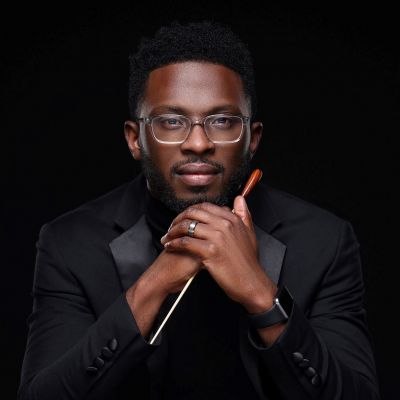
Dr. William Oliver
Huston-Tillotson University
Austin, Texas
Dr. William Oliver proved that he was “all in” when he arrived at Huston-Tillotson University (HT) in Austin as Assistant Professor of Music Education. “I wanted to learn about the community, so I sought resources and connected with stakeholders to teach me the city’s history and our institution’s role in its development. HBCUs are goldmines, and when tapped, they demonstrate to potential students how our university can lead them to their dreams,” he says.
A large part of the music education curriculum at HT revolves around the serious study of the voice or instrument. “I made it my mission to seek and hire the highest quality applied faculty,” Oliver explains. “Some teach in person, and others teach via Zoom. They occupy positions in military groups, professional symphony orchestras and professional jazz ensembles. As a result, students can study with professors who ‘live the degrees we offer.’”
To develop curriculum, Oliver asks for feedback from HBCU graduates and first-year teachers to identify areas of their music education where they wish they had more training. “I have since purchased guitars and added a class to help students learn essential skills for the contemporary music classroom. Additionally, I added companion private lessons on students’ primary instruments once a week, emphasizing jazz skills and techniques,” Oliver says.
He also connected with Pandora, a company that prides itself on seeking opportunities to assist university and community music organizations with developing commercial music and technology programs. He demonstrated to executives the multitude of real-world outlets that commercial music provides to the ever-changing music industry. “I brought the project to life — writing and presenting a complete curriculum with potential courses in audio engineering, hip-hop production and software courses in Logic Pro and Ableton Live,” he says.
These efforts have led to a tripling of students in his program. “My mantra for recruitment and retention is, ‘The best ability is availability,’” he says. “Meaningful relationships are typically not forged through a single encounter, such as through university-sponsored events. There must be a sustained interaction between a faculty member and a potential student during the recruitment process.”
Through the summer months, Oliver and new students touch base weekly — discussing curriculum, planning senior recitals and post-graduate school options even before they attend their first college class. “This reinforces our commitment to their persistence to graduation,” he says.
Oliver fought to take his students to the Texas Music Educators Association conference in 2022. “Our future music educators must be exposed to professional development opportunities while studying to become certified music teachers,” he explains. “I met with the university president to discuss the benefits of our attendance, highlighting the presentations, live performances and networking opportunities. Without hesitation, she agreed to cover our trip, which emphasizes the value of instilling a lifelong love for learning in our students.”








